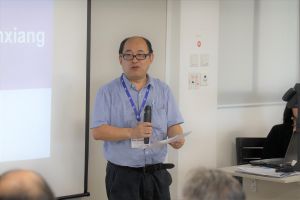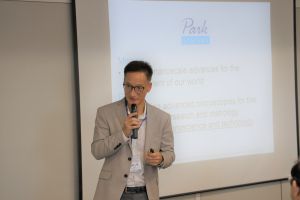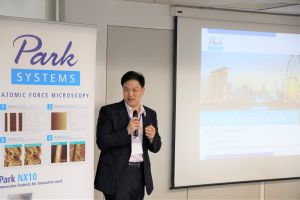
THE NANOSCIENTIFIC SYMPOSIUM ASIA 2019
Date: 25 September 2019
Time: 9.00 am to 5.00 pm
Venue: E-Cube @ Block E4, Faculty of Engineering
The symposium provided a platform for nanoscience researchers and scientists to network and learn about the latest studies being formed using Scanning Probe Microscopy (SPM).
A/Prof Zhu Chun Xiang, Deputy Director of NUS E6NanoFab started the event with the welcome message. He invited industry researcher to become a member and leverage on E6NanoFab’s state-of-the art nano-fabrication facility for research. Mr Lee Keibock, editor-in-chief of the NanoScientific publications shared the plan to provide Park System Scholarships in order to foster research in the arena of atomic force microscopy in his opening remark.
The third speaker of the morning session, Dr. Sang-Joon Cho from Park Systems gave a 40 mins talk on the latest advances in atomic force microscopy and its directions. He shared that the quantitatively characterizing electrical, magnetic, mechanical and morphological properties of these materials are major concerns for both research and industrial sectors. The new AFM PinPoint mode can precisely measure mechanical properties and electrical properties with controlled contact force at each measurement points. In addition, PinPoint mode could solve the actual problems in industrial metrological challenges.
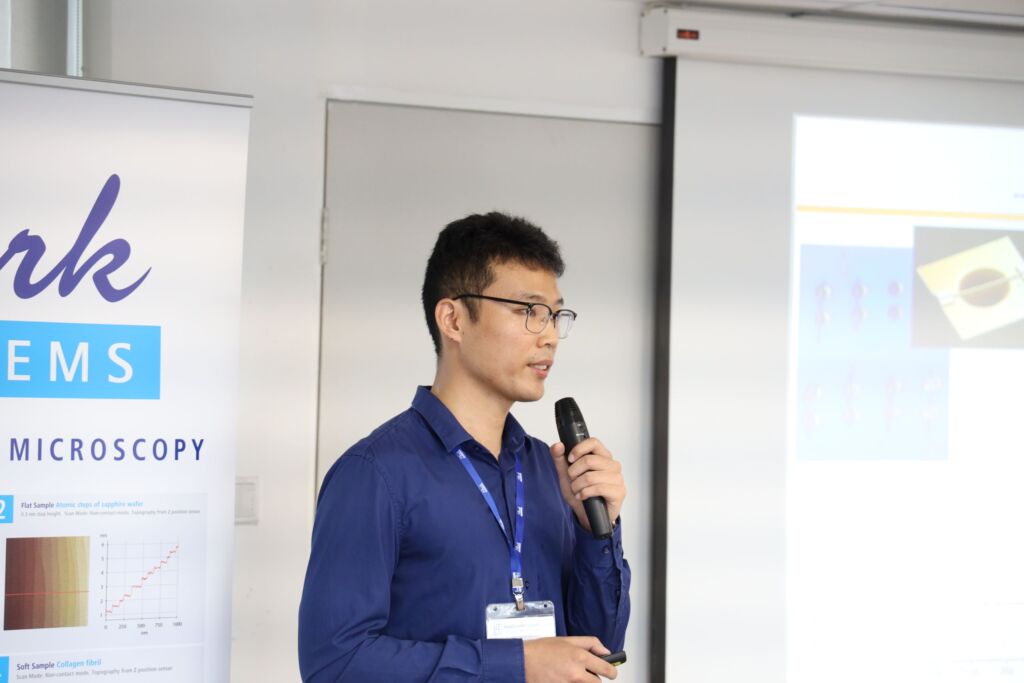
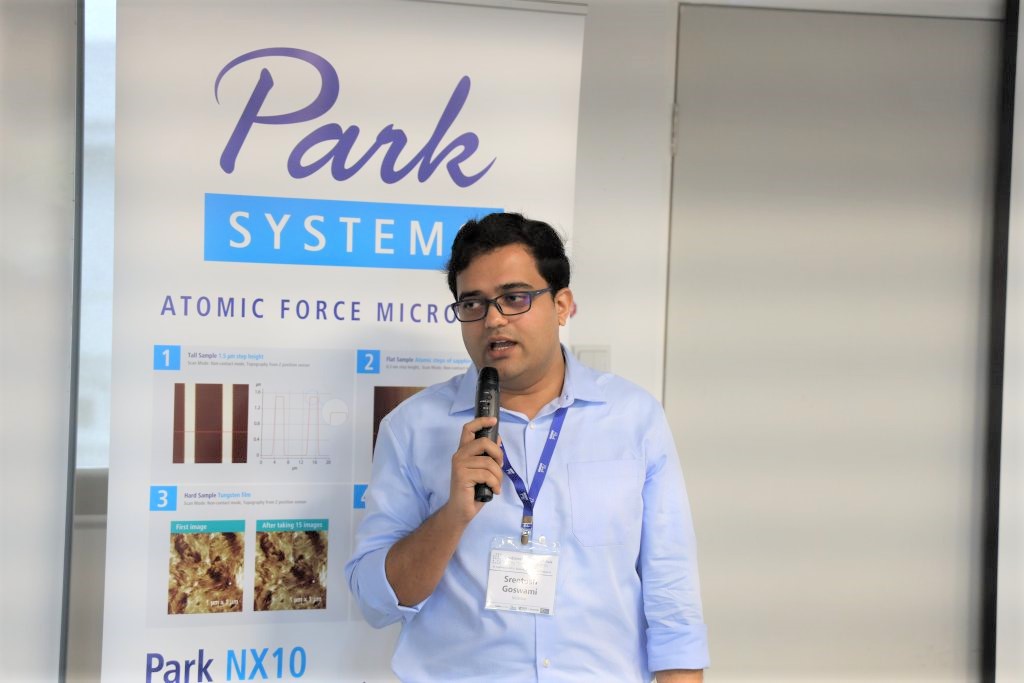
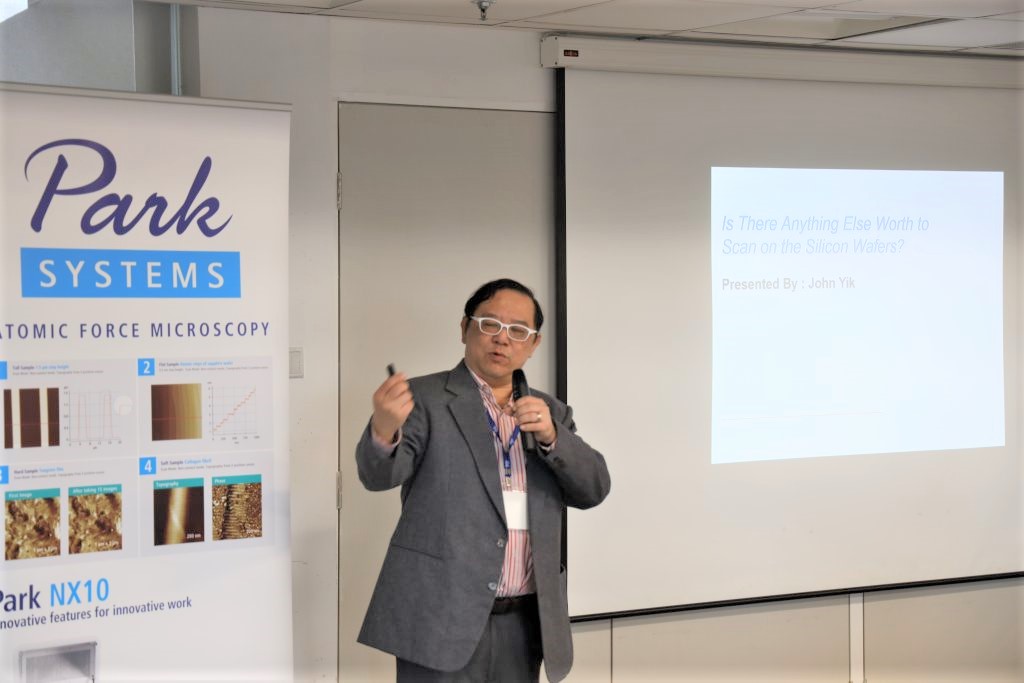
There were 8 presentations in the afternoon session.
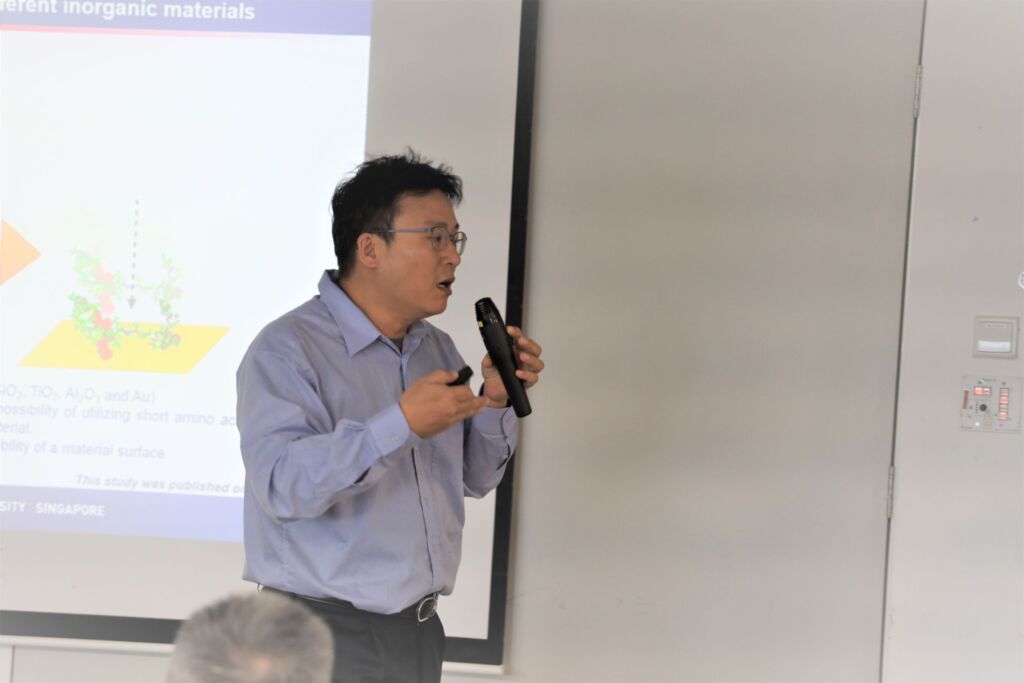
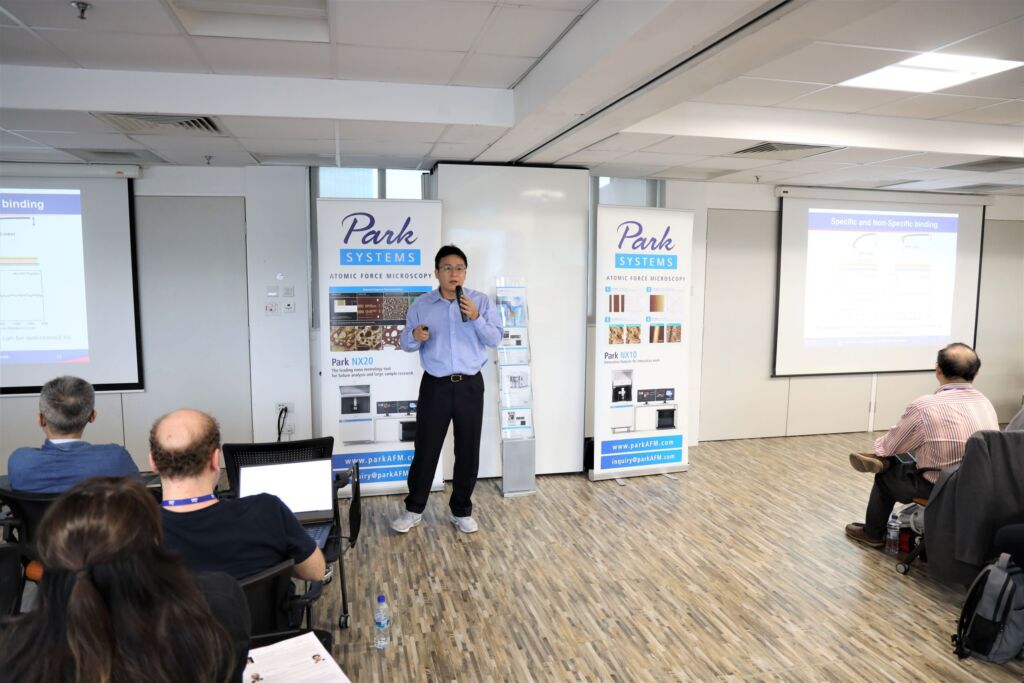
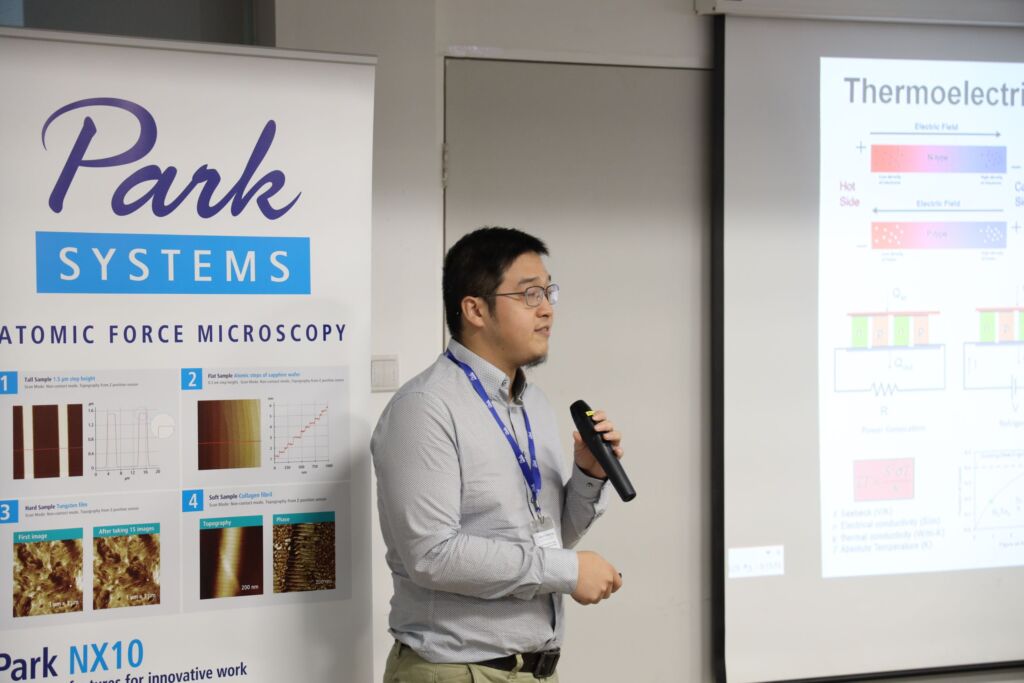
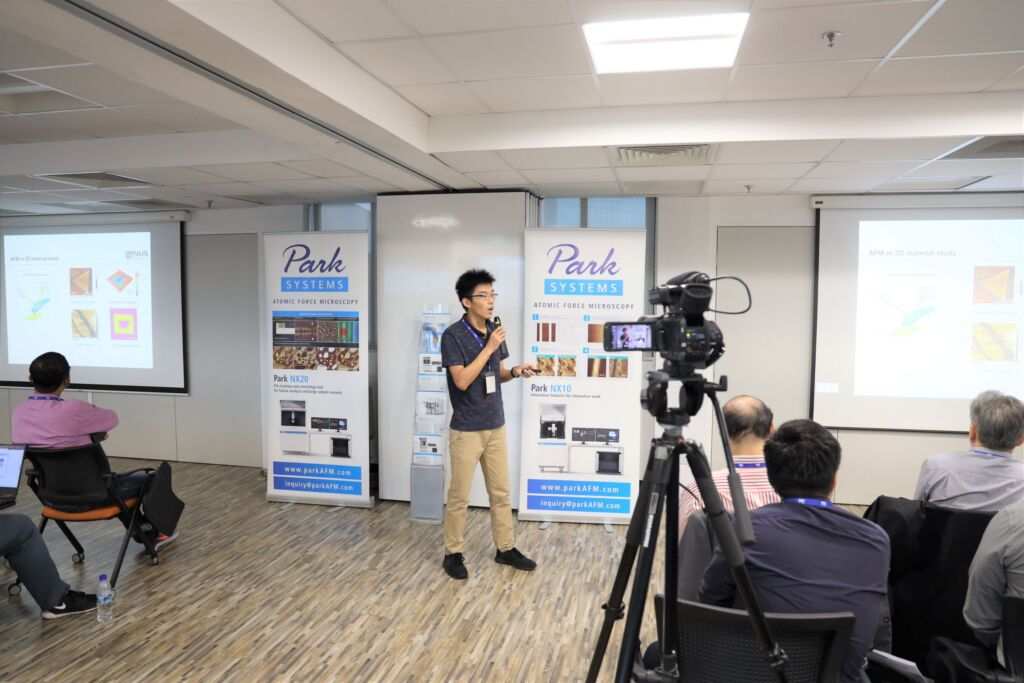
Mr. Yu Wei from Chemistry department of NUS introduced his recent work on two-dimensional ferromagnetic material studied by scanning probe microscope.
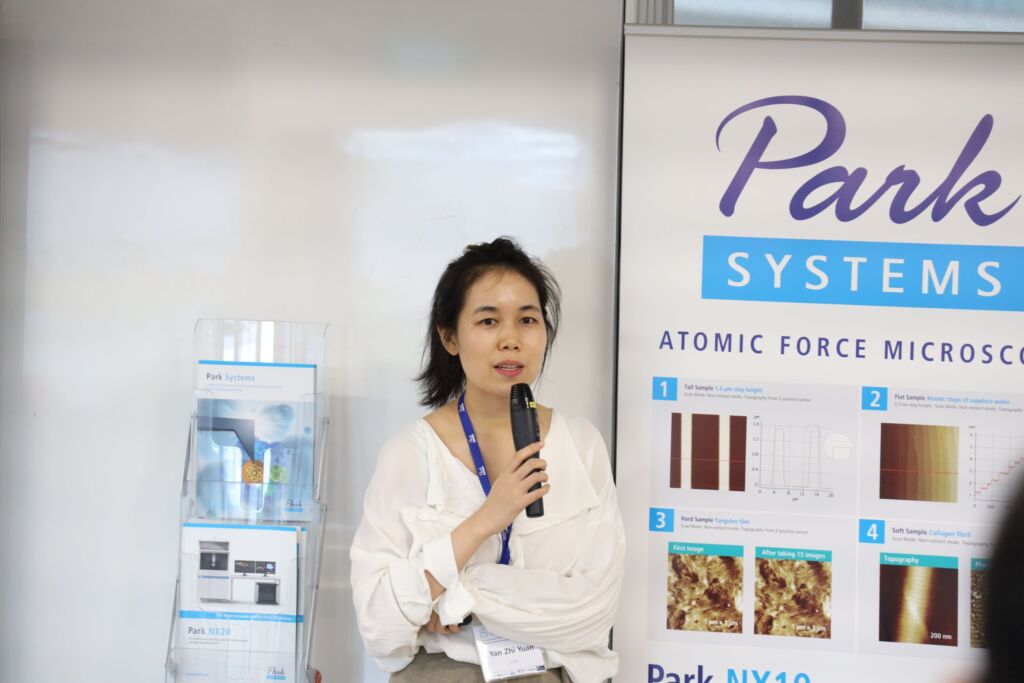
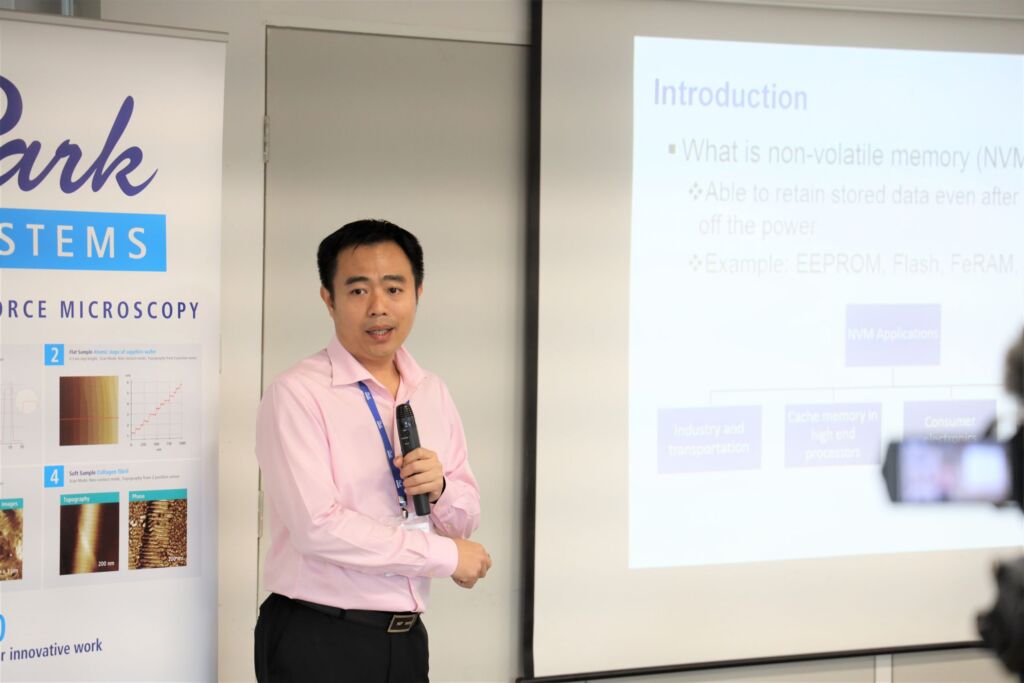
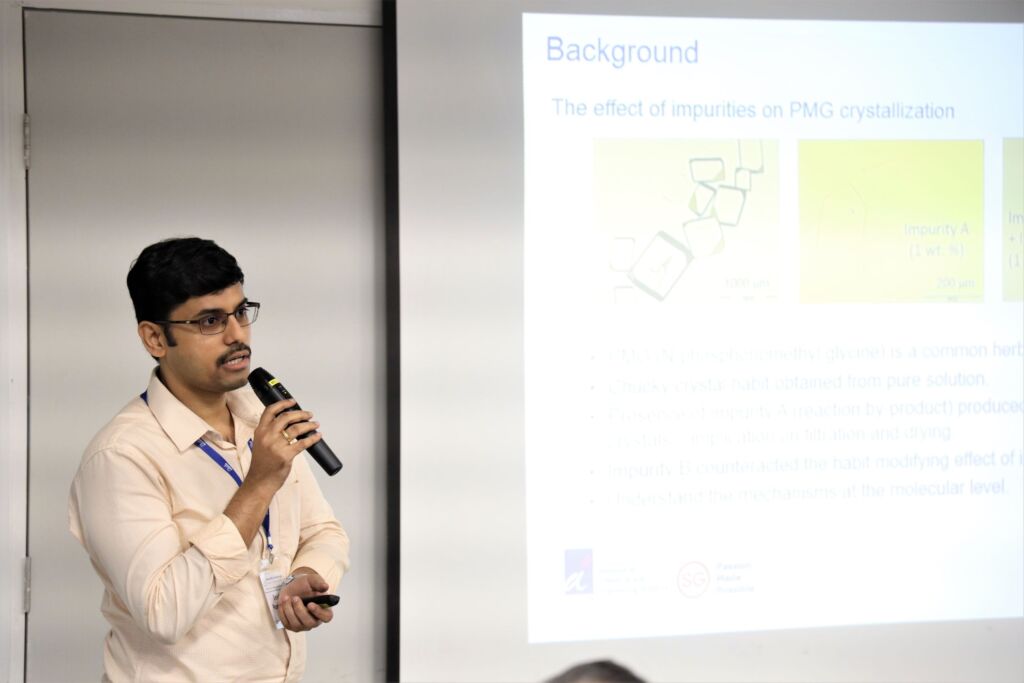
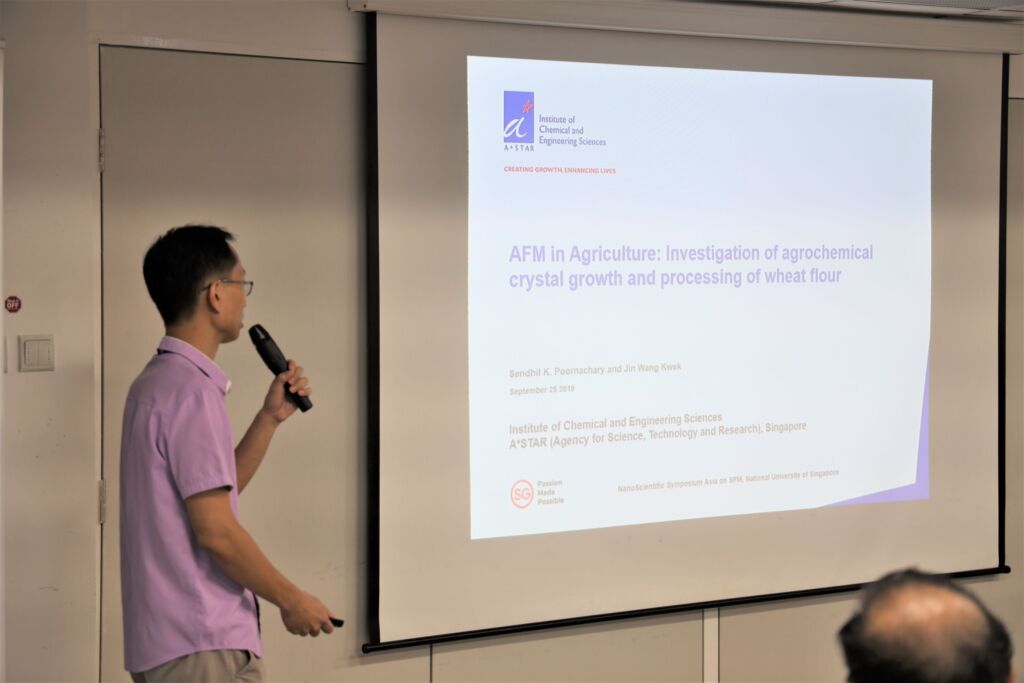
Professor Nam-Joon Cho from Nanyang Technological University talked about quantitative evaluation of viral protein binding to phosphoinositide receptors and pharmacological inhibition.
The fourth topic was on investigations into agrochemical crystal growth and processing of wheat flour using atomic force microscope. The speakers were Dr. Kwek Jin Wang and Dr. Sendhil K. Poornachary from Institute of Chemical & Engineering Sciences, A*STAR.
Follow on was the presentation by Dr Gijo Raj from Sree Chitra Tirunal Institute for Medical Sciences and Technology. He was speaking on colloidal probe and conducting atomic force microscopy for probing interfacial adhesion and charge transport properties.
The last speaker, Dr Jake Kim from Park Systems shared his experiences on the diverse applications of atomic force microscopy in academia and industry. He showed that with advanced AFM, it is possible to measure the physical, electrical, and magnetic properties of the material, it has the advantage that can be used to investigate the material with multiple aspects
Mr. Beng Seng Poo, General Manager of Park Systems Singapore wrapped up the event with a closing remarks.
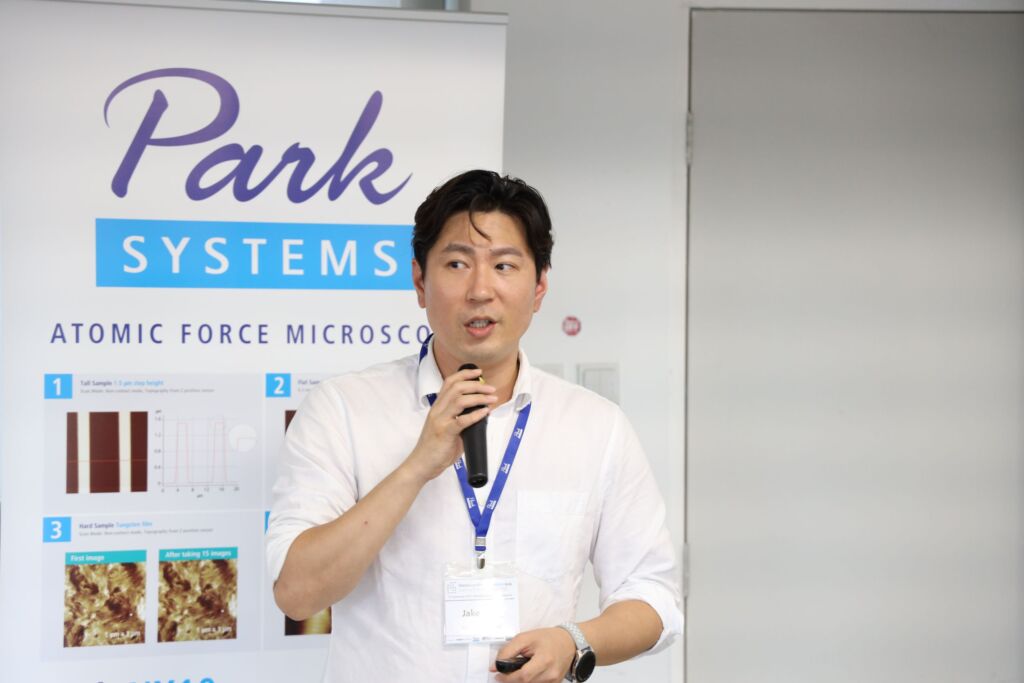
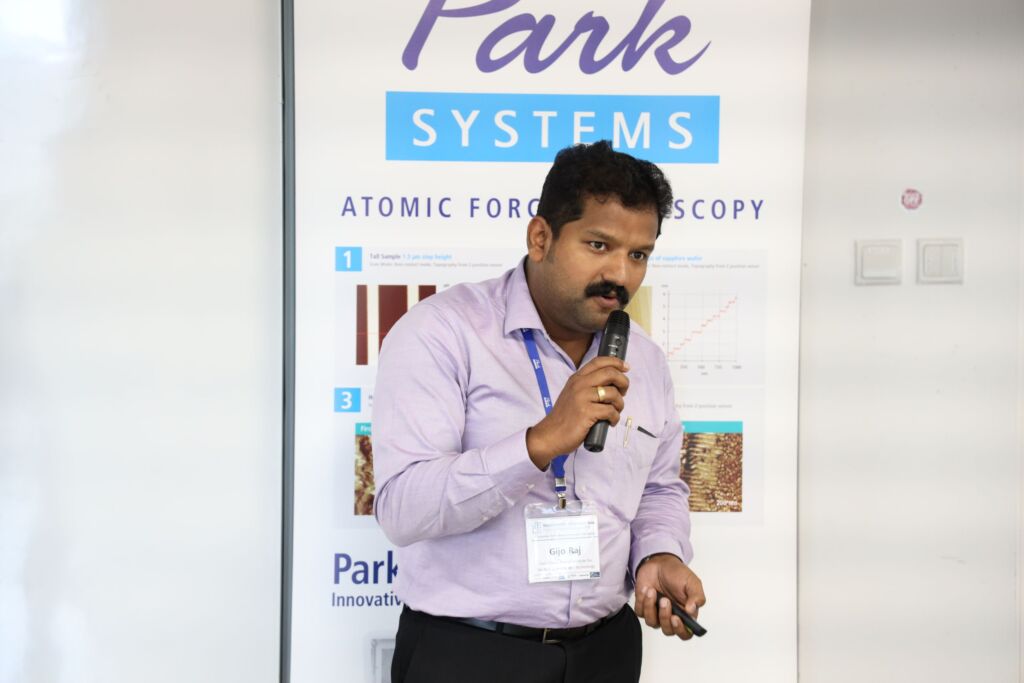
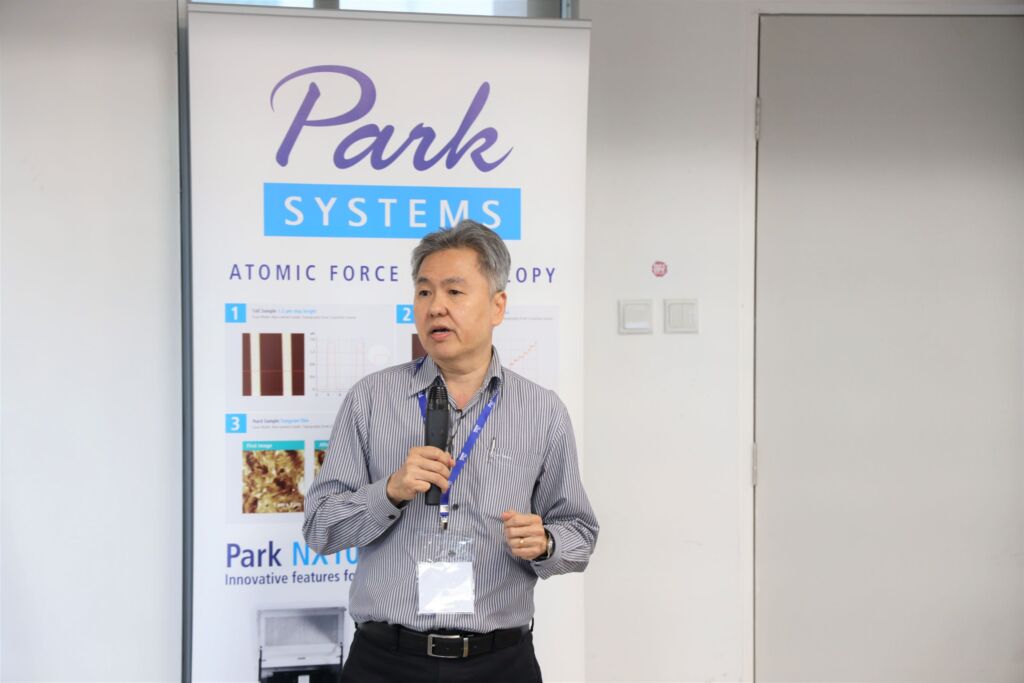
We recorded 110 percent attendance rate with 119 attendees. The audience participated actively on the floor with many questions posed. 11 participants were interviewed during and after the event. We have received very encouraging and positive feed backs from the attendees with some said would like to see the event held annually.


